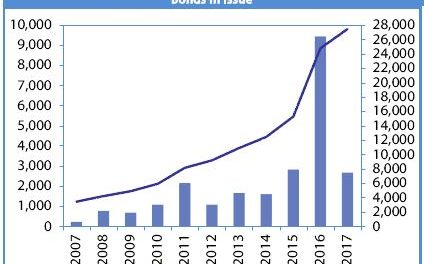
Abundance for all. Not if, but how?
Analysts working only on the United States economy are pointing out that while the unemployment rate has receded to within target levels, the effective hourly wage rate has decreased with the result that employed Americans are actually earning less than before the financial crisis of 2008. Many reports state this as the underlying reason why inflation remains very subdued; – a too large percentage of American households simply do not have the spending power to revive the economy.
Americans and their theatrics generally do not concern me, especially not from a micro-economic perspective. My interest in their economy is purely from a global macro-economic view. However, I have noticed lately that many reports carry sentiments and opinions on income inequality and these interest me for sure, for very obvious reasons. It is one of the most critical problems in an Africa that strives for a development model and outcomes, based on an equitable distribution of prosperity.
A realistic appraisal of prosperity and development must take into account that there will be rich people and poor people. It is not the income spectrum I think, that concerns most policymakers, it is the weighting across this spectrum that is of concern where governments have to design and implement economic policies in such a way that everybody gets a slice of the pie. This is the most difficult part, and countless volumes have been published dissecting income inequality as an existential phenomenon. However, practical solutions are seldom offered since it is, in my view, both an economic and a social issue.
We are only too familiar with income inequality especially where it is so glaringly obvious between various social groups. But our inequality pales into insignificance compared to the gross, distorted income inequality, for instance, in the United States where the top 1% of the über-rich, controls something like 80% (perhaps more) of the economy. It is this ticking time bomb that is grasping the attention of both American social analysts and policymakers.
This observation does not lead me to the inevitable, but simplistic socialist solution where we have to throw all assets into the same pot, and then only need to make sure everybody has a sufficiently big spoon, to partake from this pot. This utopian worldview is as untenable as it is outdated. It has been discredited completely by communism and it has caused the entire world an overload of grief.
The fact is, the world needs rich people who are the entrepreneurs, the custodians of capital, and generally, the main drivers of economic activity. Nowhere was this more clearly demonstrated than when the super luxurious yacht of the number two Microsoft founder, berthed in Walvis Bay, a few years ago. I was awestruck by this show of wealth, but when I visited the quay, I was equally impressed by the very large staff complement a boat like that needs to stay afloat. This showed me that, while many more-socialist inclined people find such wealth an outrage, on the bigger economic canvass, affluence like that creates a score of jobs, some highly paid, in its wake.
The same goes for thousands of other rich people who are active in business. Their entrepreneurship leads to the establishment of countless businesses which in turn employs million of people across the world. So, one has to realise that to be able to improve the life of poor people or to create for them an escape route out of poverty, rich people are a key ingredient.
Perhaps our government has a more sober take on the issue of income inequality. As far as I can sense, being pro-poor is not the same as being anti-rich. But this also means that there must be an agent that takes poverty serious and that works actively for the alleviation of poverty.
Assessing the imbalances of the world, whether it is in Europe, the United States or any African country, is not a simple matter. There are simply too many dynamics in the highly complex social fabric of each and every community. But when poverty has become structured, or a way of life for too large a part of the population, then a country has a serious problem. In these cases, economic development gets arrested in a perpetual trap where the available resources always fall far short of the development needs. These communities are doomed to remain poor for ever.
Still, when I look at the tremendous abundance everywhere and I count those that enjoy this abundance and compare them to those who are outside the circle of genteel life, then I realise pro-poor is not a policy or a framework, it is an attitude and a desire for a better world. It is then that I put all my weight behind leaders who make pro-poor action part of their daily itinerary.










































